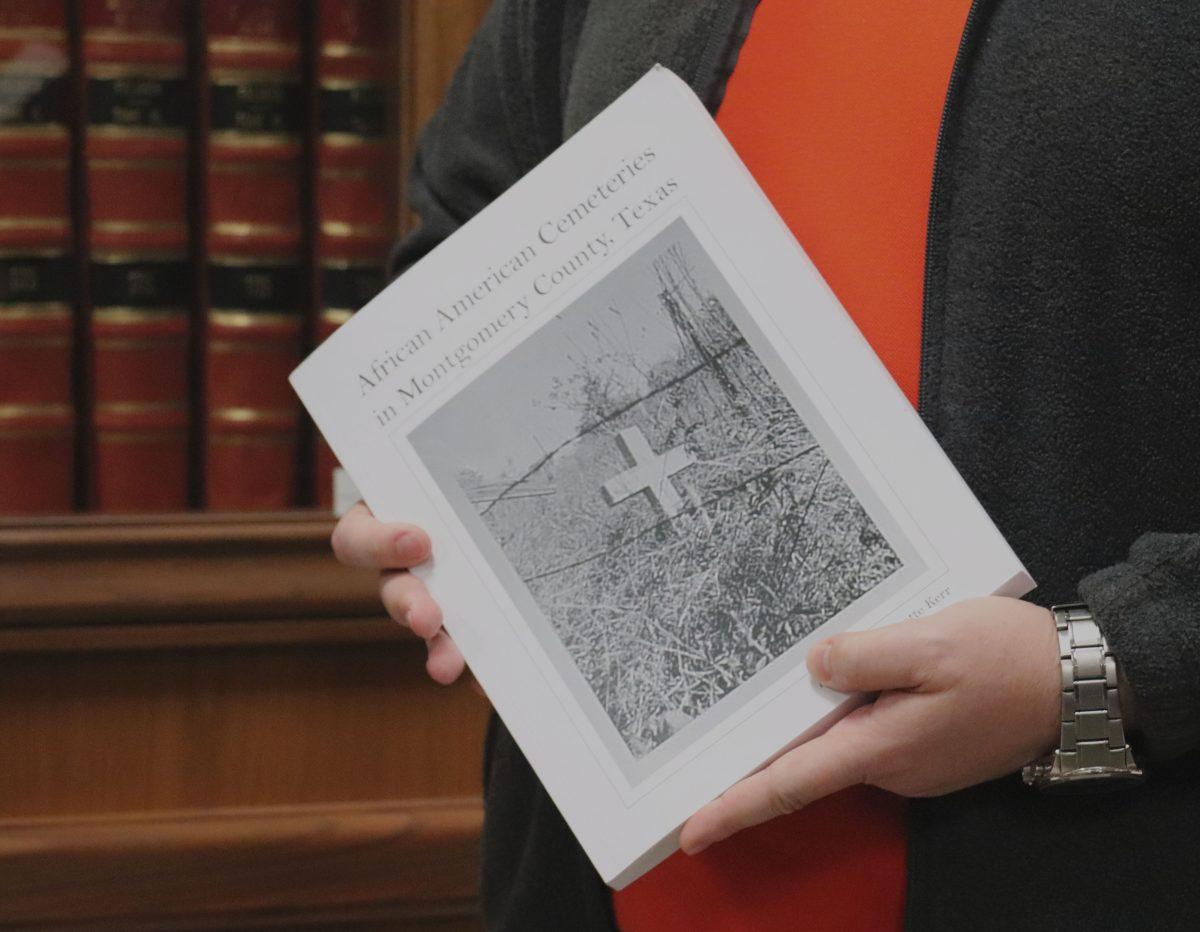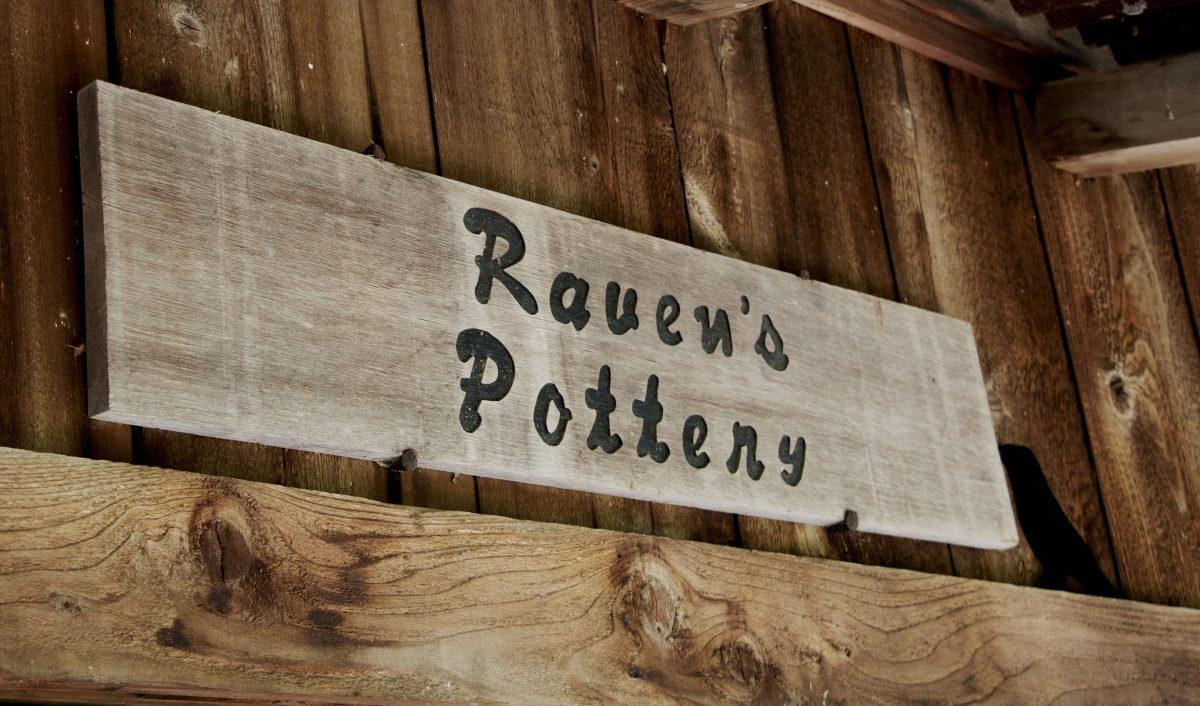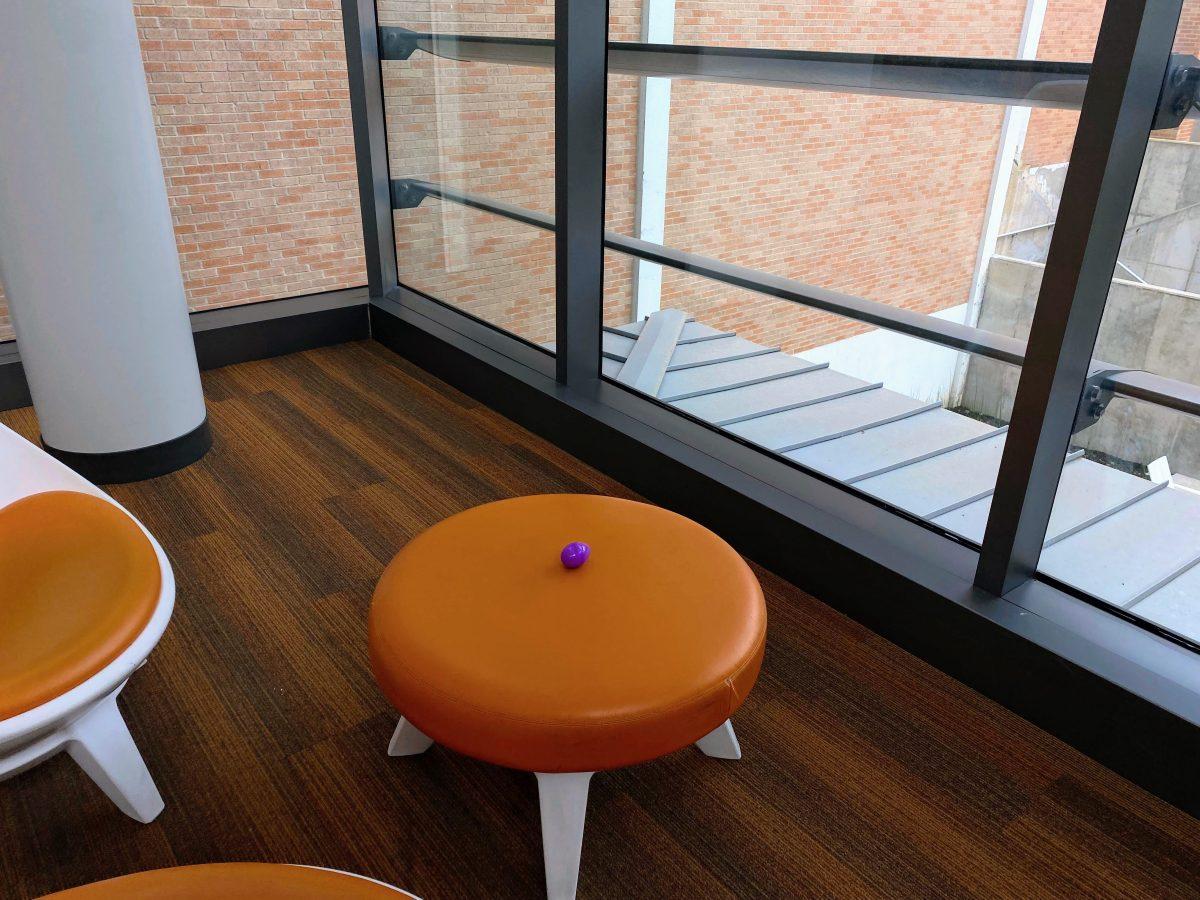Ann Meador, a former mass communications professor at Sam Houston State University, donated a book titled “African American Cemeteries in Montgomery County, Texas,” to the special collections room at Newton Gresham Library, on February 22nd.
The book is a directory of African American people buried in Montgomery County. The book can help people search and find their family’s ancestors.
Montgomery County Historical commission funded enough to give 50 print copies to surrounding counties’ public libraries.
Meador is the president of the Montgomery County History Task Force and has ongoing research concerning ancestry.
Meador says, “I got to look around at the historical organizations in Montgomery County and I found a tremendous gap in what they were doing. The gap was African American History.”
She says the book was a group project composed of individuals knowledgeable in graphic design, research, writing and Lidar.
Lidar stands for light detection and ranging. It is a method used to determine the existence of a cemetery on a piece of land.
In Christian burials, according to Meador, people are often buried facing east. If the lidar indicates east facing land, she says that there is a good chance of there being an abandoned cemetery.
Meador mentions that the purpose of this book is more than a database.
“I think it would be helpful if people could go back and look at their family trees and see that people are not so much different than they are alike.”
She says that some people who grow up in difficult academic or financial circumstances think that they are responsible. But knowing your family history gives you a sense of perspective, Meador says.
“I think that people can build self esteem and if you take a long view at your history, more often than not, it’s going to be a positive ending.”
Last, she says that it is important to realize the success of your family to be a lineage to the person researching.
“If anything else, your family was strong and resilient enough to have you.”
The book is available at Sam Houston in the Gresham Library special collections. In addition, the digitized version will be online soon.













